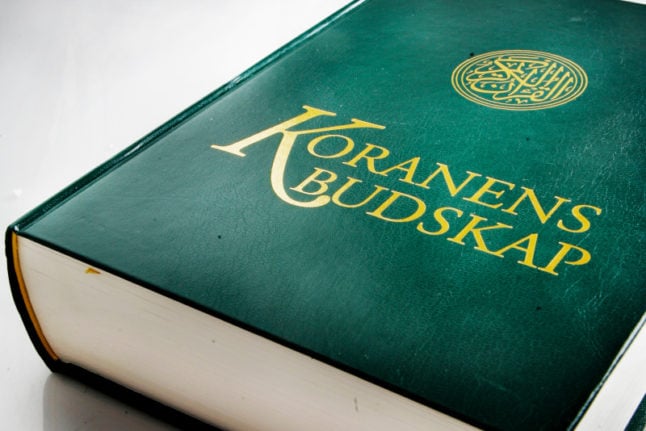RELIGION
Signs of religion ‘more visible’ in French workplaces
There is a growing presence of religion in work places around France, and with it comes a growing amount of religion-based conflicts, a new study has found.
Published: 22 September 2016 10:44 CEST

Photo: AFP
'more visible'The study, published on Thursday by the Observatory for Religion in the Workplace and the Randstad Institute, found that 65 percent of workers say they have seen signs of religion inthe workplace over the past year.
This is a significant jump from the 50 percent who said the same thing in the same survey last year.
The study took all religions into account.
Among these reports of religion at the workplace, 21 percent of managers said they had come across people wearing religious symbols, 18 percent said they'd had people asking for time off work for religious purposes, and 8 percent said they had come across people praying during a break.
“The majority of the time, these instances do not hinder the work,” Lionel Honoré, director of the observatory, told Le Figaro newspaper.
However, conflicts caused by displays of religion are increasing too.
Of those questioned, nine percent said that religion had caused some kind of conflict in the workplace, compared with six percent in 2014.
The most commonly occurring conflict was men refusing to work under a woman, something that was reported in four percent of cases.
One percent of cases involved people refusing to work with anyone who didn't practice the same religion.
While new labour laws in France spell out that work places need to respect people's fundamental rights and freedoms, such as gender equality, it seems that many managers are still uncertain what their legal rights are when such cases crop up.
With this in mind, the French government has announced plans to release a specific guide on religion in the workplace.
The guide will explain employee and employer rights when it comes to religious confrontation at work, with 39 specific cases put under the microscope as examples – including topics such as “can a worker be punished for refusing to work under a woman”.
It will be published next month.
France's controversial approach to religious clothing has made world headlines most recently this summer after a slew of coastal towns, most on the Riviera, banned the “burkini”. The bans have since been overturned by France's highest court, but not before a huge debate kicked off, reminiscent of the country's 2010 ban on the burqa.
Url copied to clipboard!


 Please whitelist us to continue reading.
Please whitelist us to continue reading.
Member comments